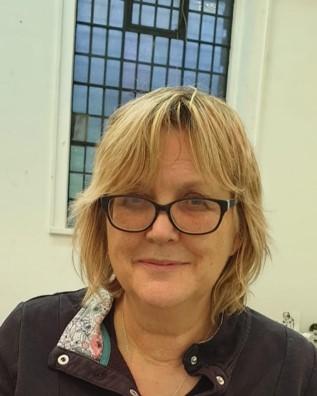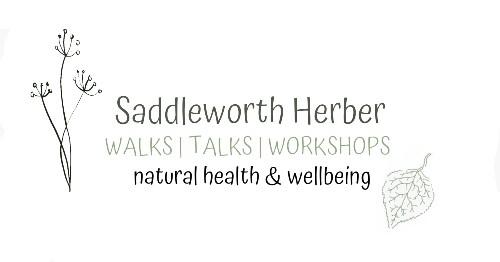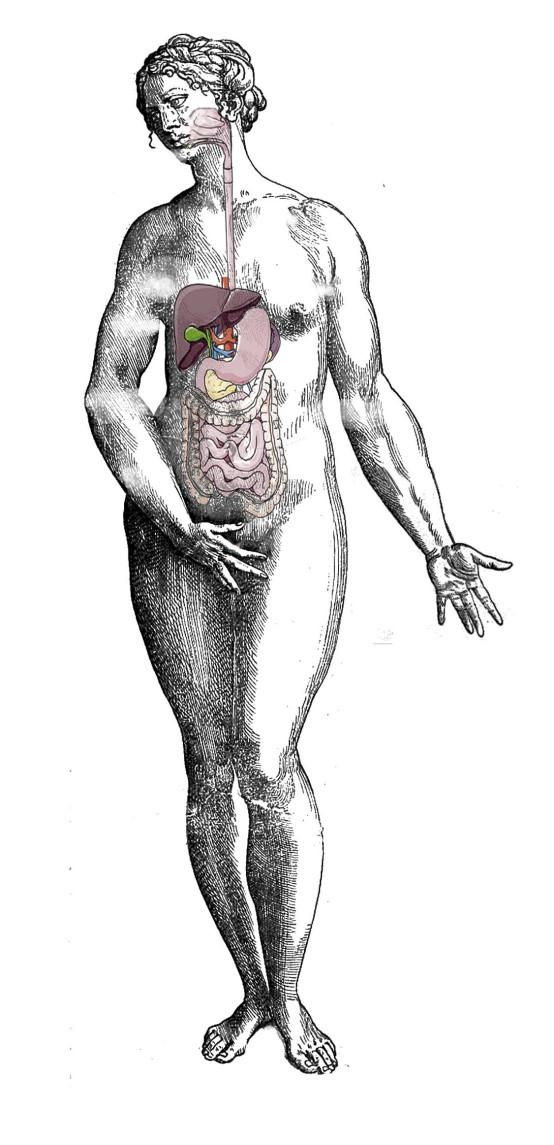
7 minute read
David Hughes meets Kate Swaine
We’ve been treated to an unusually wintery February in Edinburgh this year— true brass monkey weather. There have been two extended bouts of snow, with the kind of bitter nip in the air that lets you to see the birds’ breath when they sing. Picturesque and delightful for those who venture out, but I’m not one of them. I'm preferring to stay in hibernation for now, ensconced in a blanket fort by the fire, enjoying oversized cups of tea and the products of my slow cooker. I’ll likely stick my head out around the time the daffodils do. So, from the comfort of the couch this month— thermostat maxed and fire blazing — I relaxed into a chat about nutritional therapy and functional medicine with the fantastic Kate Swaine, practitioner at the Edinburgh Clinic of Nutrition. So, let’s get in about it: I’ve used herbs in the practice for a long time, and they can be a great adjunct to the work I do. The nervines, particularly. I might use Chamomile (Chamaemelum nobile) or Lemon Balm (Melissa officinalis) for their beneficial calming properties— reducing mental stress is a good starting point in the treatment of digestive distress.
Functional medicine is Kate’s practice. It's a model for identifying areas of imbalance in the body that can help underpin and inform the decisions of herbalists and other medical practitioners when selecting courses of treatment. In Kate’s own words: My role as a nutritional therapist and functional medicine practitioner is to identify the root causes of imbalances in the body. These may be biochemical or microbial, possibly a nutrient deficiency. I'm not treating the person, but rather identifying what the imbalances are, where they stem from and what lifestyle changes could be adopted that will see an improvement in a patient's health. Now, never one to pass up the opportunity to glean an enriching opinion from an expert, I was keen to learn whether there is such a thing as a one-size fits all healthy diet. There just isn't one diet to fit all, sadly. The research findings from recent Crohn’s and Colitis papers can point in one direction, but then you’ll encounter outlier patients who— although [they] suffer these same conditions —aren't necessarily responding well to the most obvious and recommended courses of treatment. You can’t just assume. A patient may have found information online that suggests a Paleo-style diet can be beneficial in the treatment of autoimmune conditions and, while it may show improvements for some, others may find this particular diet can be disastrous. More and more, the forward course of action for any individual will depend on a patient’s specific microbiome, combined with their genetics, and so many other factors. That's not to say there aren't obvious initial steps that can be taken toward better digestive health; for some, removing gluten for a trial period can be worthwhile, for others introducing a broader range of plant-based foods can be helpful. Making dietary changes can be challenging as we may be breaking long-ingrained habits. Radical changes can be too much for people who are already carrying the burden of busy lifestyles, caring responsibilities and high stress. For these people, an approach with longer time scales is preferred, to allow us to slowly introduce dietary change— starting with nervine teas to reduce stress —rather than make a rake of sweeping lifestyle changes that will only be adhered to for a fortnight because it becomes overwhelming. Sweeping dietary changes are not just
Advertisement
negative for those in digestive distress; how many times have you heard diets discussed that were considered nonsustainable because people felt they ran out of energy?
If there isn't a one-size fits all diet, then what foods should we look to consume to help us on the path to better digestive health? Generally, we all need to be eating a bigger range of plant-based foods. This can't be disputed. It doesn't mean you have to be vegan, but it does mean you should eat a very broad range of plant foods, rich in phytonutrients and flavonoids. You have to mix it up, though— if you're just eating broccoli, carrots and onions, then that should be considered as limiting your range. Good variation is definitely key. It’s also why there are so many benefits to a typical Mediterranean diet, with its wide variety of fresh, whole foods, scientifically proven to be beneficial. It has plenty of omega oils from fish, some carbs but not too many and, most importantly, lots of colour on the plate. If I was to suggest a general dietary habit that would benefit the majority of people, then the consumption of a Mediterranean diet is a good place to start. Although more heavily salted, the same variation in healthy ingredients exists in Japanese cuisine and you’ll find dishes that contain many beneficial elements combined on the same plate; seaweed, pickled vegetables, fish, all that good stuff.
It occurs to me, and not for the first time, how the healthy nature of Japanese and Mediterranean regional cuisine encompasses the idea of eating the landscape. It's a concept that people, particularly in Britain and North America, began to move away in the 1950s, as they gravitated toward the convenience of preprepared food and away from the allotment. People place much less importance on food here than other places around the world, and there is a cost element to it as well. Although there is a shift back towards healthier eating underway, the trend in Britain and America has been to go for the most convenient thing that will fill them up quickly and cheaply, or that will fill them up but without putting on weight.
So, what would you imagine the diet of a Functional Medicine Practitioner and Nutritional Therapist is like? Disgustingly clean and healthy? No, it’s not saintly! But yes, for the most part I walk the talk, as I love healthy, vibrant food. I do my best to stay away from processed food. My diet is mainly plant-based, but with a lot of variation within that. I’m a meateater, but very fussy about sourcing— and not every day. I’ve been pescatarian, then vegetarian for a decade, and then vegan. I love dark chocolate and if crisps were good for me, I’d eat them more often!
I was curious to find out more about why Kate gave up a wholly plant-based diet, and I found her answer very relevant to the focus of the practice she has gone on to build: Ultimately, I felt rubbish; energy was low, stress levels were through the roof. I don't think I was assimilating enough B vitamins, iron, zinc— all things that, bang for your buck, can be easier to get from good quality animal products. Again, so many of these things are based on an individual's genetics and biome and what works for one person may not work the same way for another. Some people switch to veganism and feel fantastic, but obviously I never see these people because they're not feeling unwell. For certain medical conditions, a high fat animal protein diet can be beneficial— but long-term, that is not going to be good for healthy gut bacteria and, ultimately, needs to be balanced out with plant-based foods. Some people may feel better without grains— begging the question, ‘Why are they maldigesting the grains?’ It really is down to the individual. There's a lot of interesting findings being discovered on the differences in the gut bacteria between someone on a high animal protein diet and someone on a plant-based diet. Findings seem to suggest that plant-based with just a little bit of animal protein promotes the highest diversity of beneficial gut bacteria— and the more diverse, the better.
To close us out, I decide to ask Kate if there is any single lifestyle or dietary change that any of us could make, to potentially improve the state of our health: Yes! But it's one you can't really do much with food for— vitamin D deficiencies are a massive problem in the northern hemisphere, especially at this time of year. Everyone should get more sunlight during the summer because you can't make vitamin D at all during November to March— even on the sunniest of winter days. When we all lived a more traditional lifestyle, people would have spent far more time outdoors in the lovely long days of summer, making and storing vitamin D. What we see now is people who are incredibly deplete of vitamin D by the time March rolls around, as they didn’t make enough during the summer— and it’s an essential nutrient. We also used to eat more mackerel and herring. And you can get a little bit of vitamin D from oily fish, but nothing like the sun. Mushrooms grown in the sun store a little bit of vitamin D but, again, exposure to the sun is the important factor— you’re talking miniscule amounts compared to what 15 minutes in the sun will do for you.
So, while we all dream of frolicking in the warmth of summer, I’ll leave you with a top tip from Kate that certainly suits my mood right now:
Do things slowly. Make changes slowly. Listen to your body— sometimes it takes a while.








